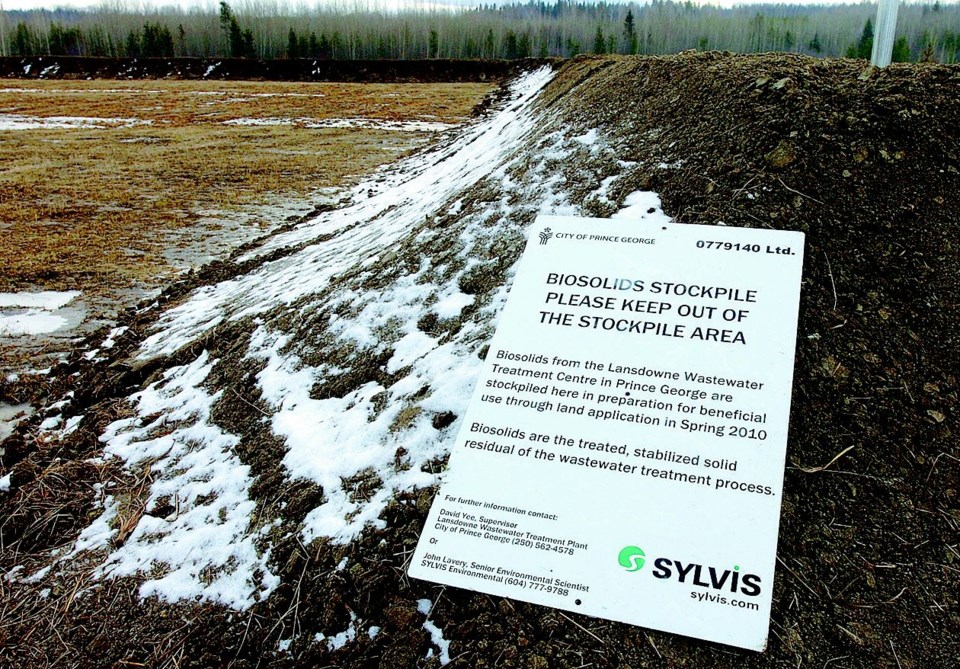New requirements for the management and use of biosolid are among the proposals being aired in a policy intentions paper for the provincial government's organic matter recycling regulation.
The peat-like material distilled out of the sludge from sewage treatment plants has been a source of controversy in the Prince George area.
Efforts in past years to apply the material to farmland in Salmon Valley and to a tree farm in Red Rock met with stiff opposition from local residents concerned it would create a toxic runoff.
The current regulation has been in effect and needs to be updated "to reflect the best available science and to ensure the highest levels of protection for the environment and human health are in place," the B.C. Ministry of Environment said in a press release this week.
New and updated proposed policies highlighted in the intentions paper include:
- Improving public transparency through online posting of biosolids land applications and posting of plans and reports for non-permitted compost facilities;
- Requiring notification be given to First Nations for new compost facilities and land application of biosolids;
- Improving facilitation for organics recycling, which will decrease materials that are landfilled;
- Harmonizing with national guidelines, other B.C. regulations and other requirements and standards; and
- Introducing new standards for protection of human health and the environment, including enhanced planning and reporting requirements, new technical standards and improved compost storage requirements.
In addition to the public engagement, focussed discussions will also take place with First Nations, agricultural producers and local governments.
The deadline for public comments is Dec. 2.The intentions paper can be viewed at: www2.gov.bc.ca/assets/gov/environment/waste-management/recycling/organics/omrr_ip_sept_22.pdf.
Findings from the province's scientific review, including a soil sampling report and literature review. are available at: www2.gov.bc.ca/gov/content/environment/waste-management/recycling/organics/regulations-guidelines.
Amendments to the OMRR, based on all engagement and information received, are anticipated to take place in 2017.


